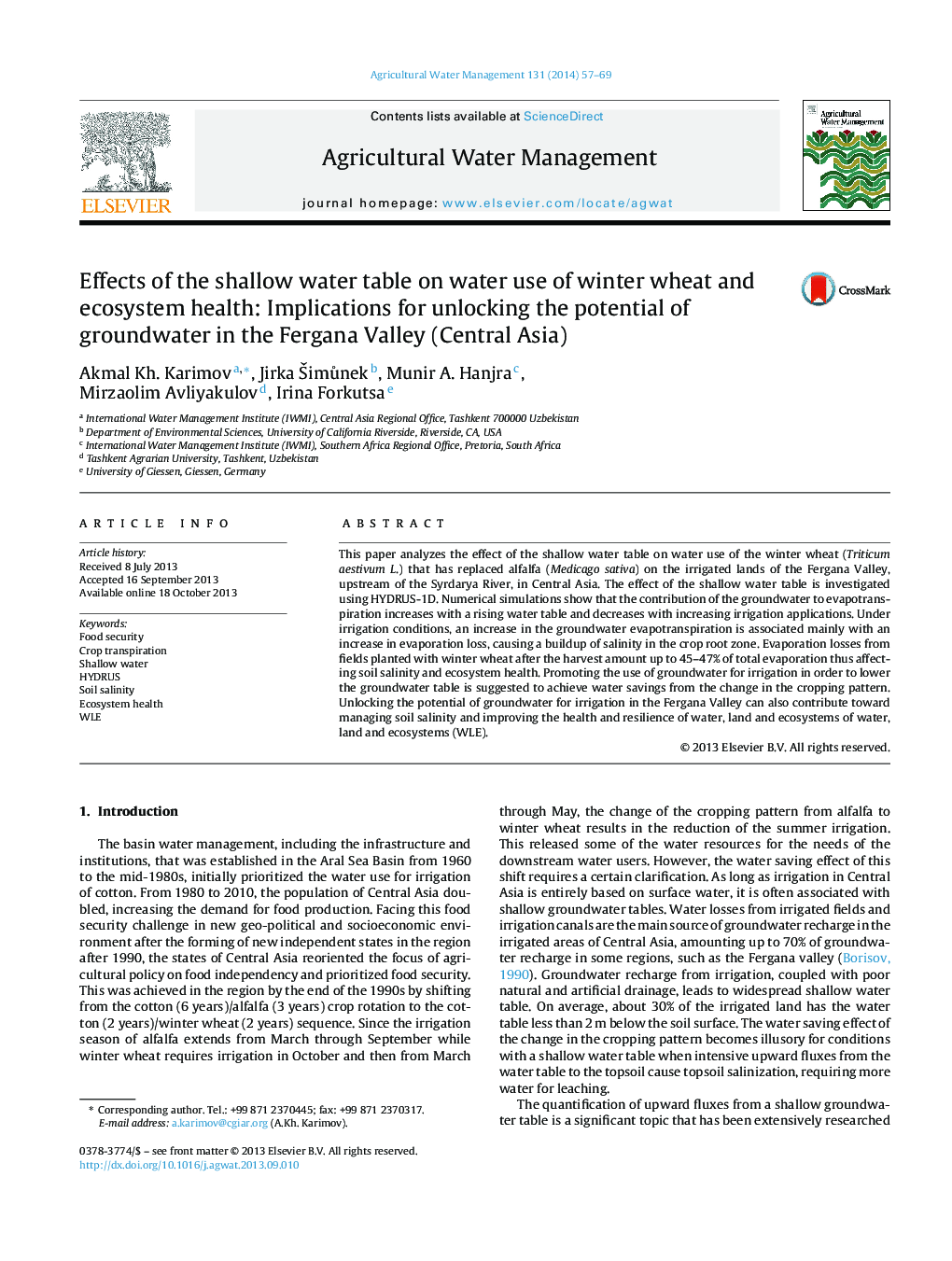| Article ID | Journal | Published Year | Pages | File Type |
|---|---|---|---|---|
| 6364002 | Agricultural Water Management | 2014 | 13 Pages |
â¢Contributions from shallow groundwater to crop ET highly depend on irrigation regimes.â¢Cultivation of single crop (winter wheat) under shallow water does not produce water savings.â¢Under shallow water, reduced irrigation applications are compensated by intensive upward fluxes.â¢Upward water fluxes contribute more towards increasing evaporation losses than crop transpiration.
This paper analyzes the effect of the shallow water table on water use of the winter wheat (Triticum aestivum L.) that has replaced alfalfa (Medicago sativa) on the irrigated lands of the Fergana Valley, upstream of the Syrdarya River, in Central Asia. The effect of the shallow water table is investigated using HYDRUS-1D. Numerical simulations show that the contribution of the groundwater to evapotranspiration increases with a rising water table and decreases with increasing irrigation applications. Under irrigation conditions, an increase in the groundwater evapotranspiration is associated mainly with an increase in evaporation loss, causing a buildup of salinity in the crop root zone. Evaporation losses from fields planted with winter wheat after the harvest amount up to 45-47% of total evaporation thus affecting soil salinity and ecosystem health. Promoting the use of groundwater for irrigation in order to lower the groundwater table is suggested to achieve water savings from the change in the cropping pattern. Unlocking the potential of groundwater for irrigation in the Fergana Valley can also contribute toward managing soil salinity and improving the health and resilience of water, land and ecosystems of water, land and ecosystems (WLE).
